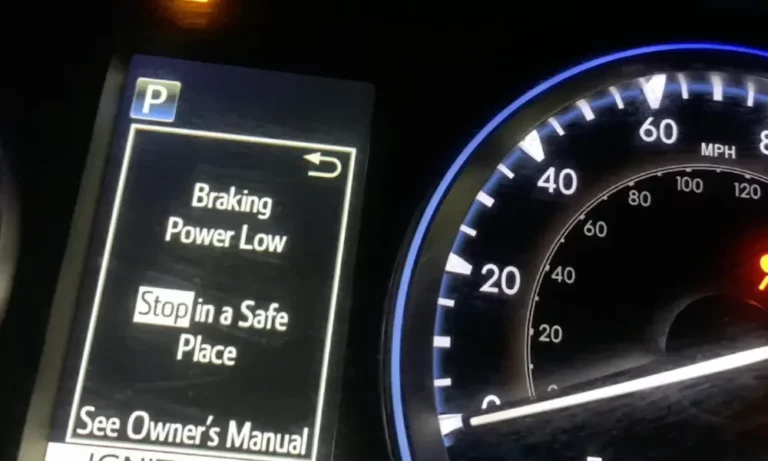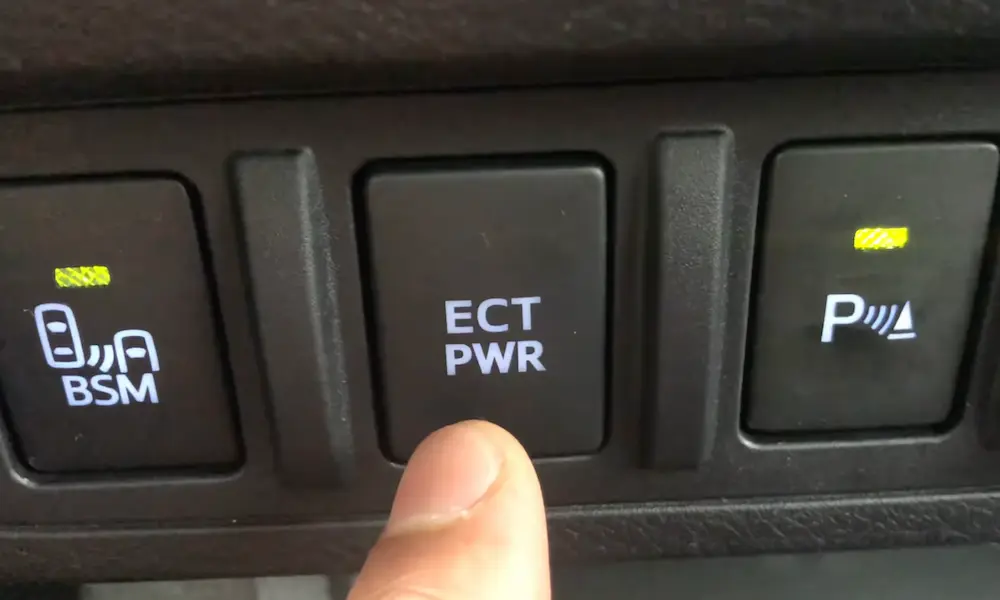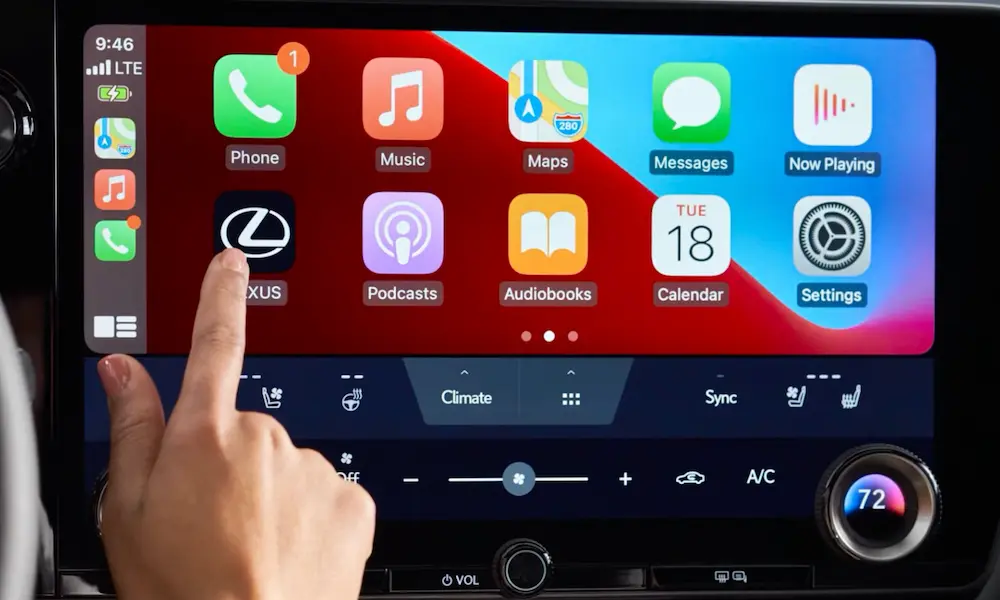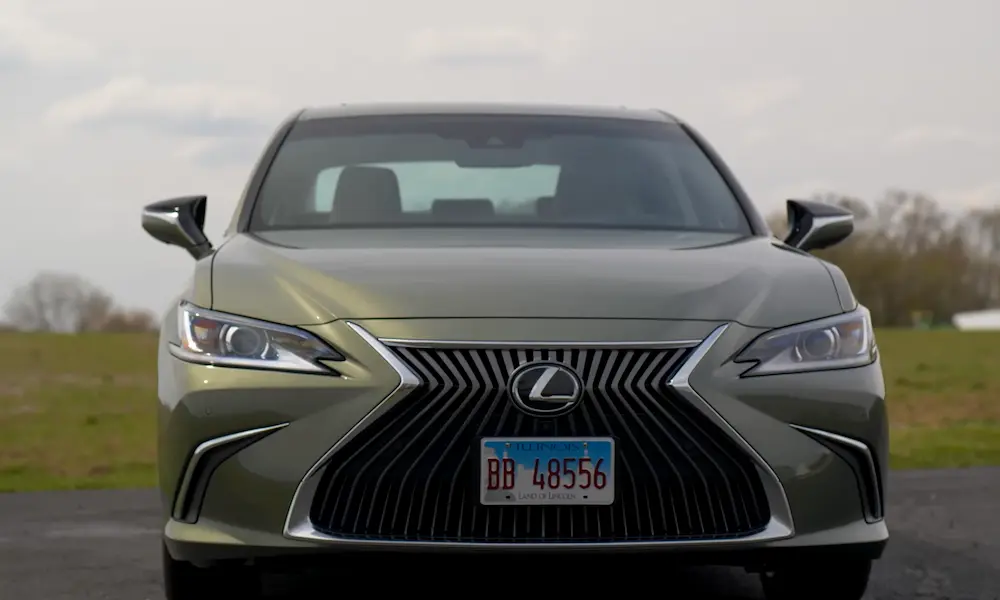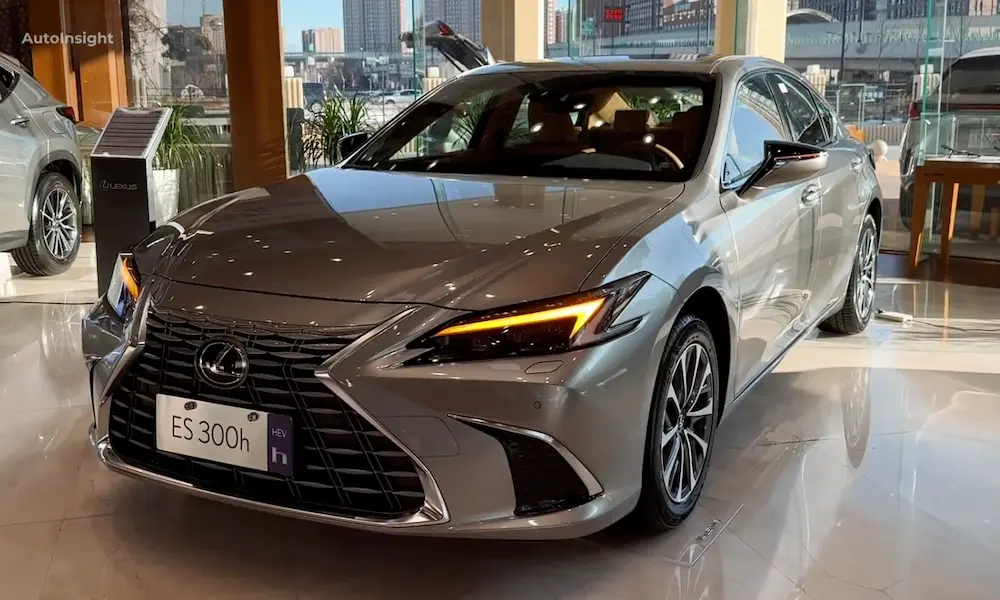Is your Lexus dashboard suddenly lighting up with a “Braking Power Low” warning? You’re not looking at an immediate brake failure – but you do need to understand what’s happening. This warning can appear suddenly and might come with other alarming messages, leaving you wondering if it’s safe to drive.
Let’s cut through the confusion and get to the bottom of this common Lexus issue.
What Does “Braking Power Low” Actually Mean on a Lexus?
When your Lexus displays the “Braking Power Low” message, it’s telling you there’s a potential issue affecting your braking system’s performance. But here’s the twist – it doesn’t always mean your brakes are failing.
This warning typically shows up as “Braking Power Low. Stop at a safe place” or sometimes “Braking Power Low. Visit Your Dealer” depending on your model. Either way, it deserves your attention.
The #1 Cause: It’s Usually Your Battery (Not Your Brakes)
Surprisingly, the most common culprit behind a “Braking Power Low” warning is actually a failing 12V battery. Lexus vehicles have sophisticated electronic systems that get finicky when battery voltage drops.
When your battery starts failing, it often triggers a cascade of seemingly unrelated warning lights, including:
- Braking Power Low
- VSC warnings
- ABS alerts
- Traction control warnings
Many Lexus owners have discovered that a simple battery replacement completely resolves the “Braking Power Low” warning. One RX 350 owner shared: “Just to close the loop. It was the battery. Thanks all for responding.”
Signs Your Battery Is Causing the Problem
Your Lexus will drop clues that the battery is behind your braking warning:
- Multiple warning lights appearing simultaneously
- Difficulty starting the vehicle or it only enters accessory mode
- Flickering dashboard lights when trying to start
- Vehicle suddenly shutting down while driving
- Warning messages appearing and disappearing unpredictably
If you’re experiencing several of these symptoms along with the “Braking Power Low” message, your battery is the likely suspect.
When It Actually IS Your Brakes (Less Common Causes)
While the battery is often the culprit, genuine brake system problems can trigger this warning too:
1. Brake Fluid Issues
Low brake fluid can activate the warning. Check your brake fluid reservoir – if it’s significantly below the “MIN” line or empty, this could be your problem.
A Lexus RX350 owner discovered their warning appeared because the brake fluid reservoir was completely empty. This requires immediate attention, as it could indicate a leak.
2. Brake Booster Problems
The brake booster helps you apply pressure to the brakes with less effort. When it malfunctions, your Lexus may display the “Braking Power Low” warning.
You might also notice:
- Harder-than-normal brake pedal
- Increased stopping distances
- A hissing sound when applying brakes
3. Brake Actuator or Accumulator Failures
These components are part of your Lexus’s electronic braking system. They can fail, particularly in older models, triggering the warning message.
Step-by-Step Troubleshooting Guide
Follow this logical process to identify and fix the issue:
Step 1: Check Your Battery First
Since battery issues cause most “Braking Power Low” warnings, start here:
- Get your battery tested at an auto parts store (most do this for free)
- Try jump-starting the vehicle – if successful, it points to a battery issue
- Inspect battery terminals for corrosion or loose connections
- Consider the battery’s age – Lexus batteries typically last 3-5 years (less in hot climates like Florida)
Step 2: Check Your Brake Fluid
If your battery tests fine:
- Locate the brake fluid reservoir (typically near the driver’s side of the engine bay)
- Check fluid level – should be between MIN and MAX marks
- Inspect fluid color – should be clear or light amber (dark fluid needs changing)
- Look for leaks around wheels, brake lines, and under the vehicle
Step 3: Look for Additional Symptoms
If neither the battery nor brake fluid seems to be the issue, pay attention to how your vehicle performs:
- Is the brake pedal harder to press than normal?
- Do the brakes feel different when slowing down?
- Are there any unusual noises when braking?
Step 4: Professional Diagnostics
If you can’t identify the problem, it’s time for professional help:
- Visit a Lexus dealer for specialized diagnostics
- Have them scan for trouble codes related to the braking system
- Ask specifically about the brake booster and actuator if previous steps didn’t resolve the issue
Typical Repair Costs: What to Expect
| Repair Needed | Typical Cost Range | DIY Difficulty |
|---|---|---|
| Battery Replacement | $200-$300 | Easy |
| Brake Fluid Top-off | $10-$20 | Easy |
| Brake Fluid Flush | $100-$200 | Moderate |
| Brake Booster Replacement | $500-$900 | Difficult |
| Brake Actuator Replacement | $1,000-$2,500 | Professional Only |
| Fixing Brake Fluid Leaks | $150-$500+ | Varies by location |
Real-World Success Stories: What Fixed It For Others
Many Lexus owners have shared their experiences with resolving this warning:
“My GS recently told me my brake system failed and I needed to stop driving it and take it to the dealership. Thanks to my experience… I swapped the battery first and everything is fine.”
Another owner of a 2017 RX 350 who couldn’t start their car and received the “Braking Power Low” message completely resolved the issue by replacing the battery.
One RX owner initially panicked seeing multiple warning lights including “Braking Power Low” but discovered: “Battery was going bad, had it replaced at the dealer, and I’ve had no problems since.”
Preventing Future “Braking Power Low” Warnings
Keep that warning from returning with these preventive measures:
For Battery-Related Prevention:
- Get your battery tested annually, especially as it gets older than 3 years
- Take longer drives occasionally if you typically only make short trips
- Keep battery terminals clean and free of corrosion
- Consider a battery tender/maintainer if your Lexus sits unused for long periods
For Brake-System Prevention:
- Check brake fluid levels every few months
- Follow the maintenance schedule for brake fluid replacement (typically every 2-3 years)
- Address any changes in brake feel immediately
- Have brakes professionally inspected during regular services
When to Seek Emergency Help
While most “Braking Power Low” warnings don’t indicate immediate danger, there are situations where you shouldn’t continue driving:
- If the warning appears alongside noticeably reduced braking performance
- If you find significant brake fluid leakage
- If the warning comes with unusual noises or vibrations during braking
- If the message appears with multiple other critical warnings and the vehicle is behaving erratically
In these cases, pull over safely and arrange for the vehicle to be towed to a service center.
Resetting the Warning After Repairs
After fixing the underlying issue, you may need to:
- Disconnect the battery for 5-10 minutes (after recording any radio presets)
- Reconnect the battery and start the car
- Drive normally for a short period to allow systems to recalibrate
For more complex issues, dealers may need to use specialized equipment to reset warning systems after repairs.
Why Lexus Vehicles Are Particularly Sensitive to Battery Issues
Modern Lexus vehicles have sophisticated electrical systems that make them especially prone to displaying “Braking Power Low” warnings when battery power is insufficient.
These luxury vehicles use electronic brake force distribution, stability control systems, and other advanced features that rely on consistent voltage. When voltage drops, these systems generate warnings as a precaution.
This sensitivity explains why so many Lexus owners experience this warning in conjunction with battery issues rather than actual brake system failures.
Which Lexus Models Commonly Display This Warning
The “Braking Power Low” warning most frequently appears in:
- RX series (particularly 2016-2022 models)
- ES series
- IS models
- GS models
- NX crossovers
While any Lexus can potentially display this warning, the above models have more documented cases due to their specific brake and electrical system configurations.
Remember, modern cars are essentially computers on wheels, and like any computer, they need stable power to function correctly. Your Lexus is telling you something’s wrong—it’s just not always what you might initially fear.

